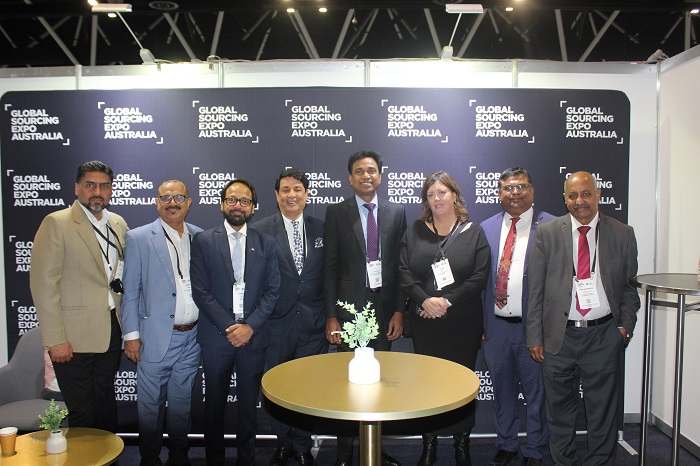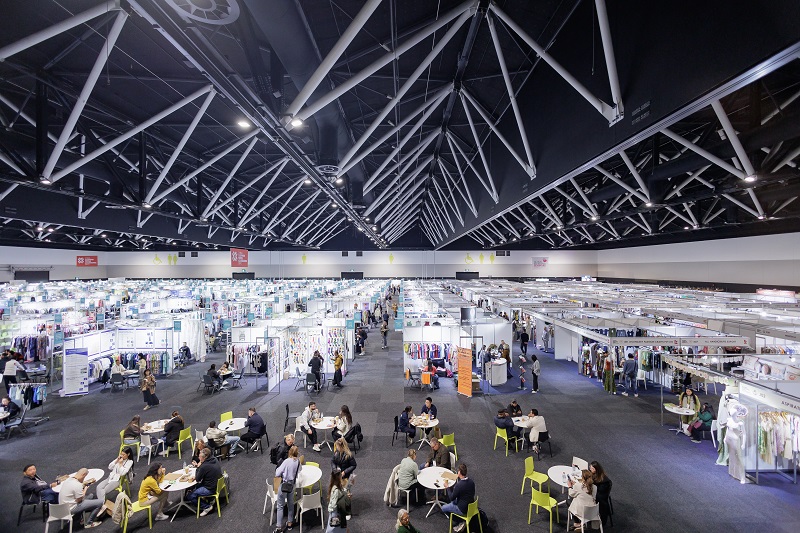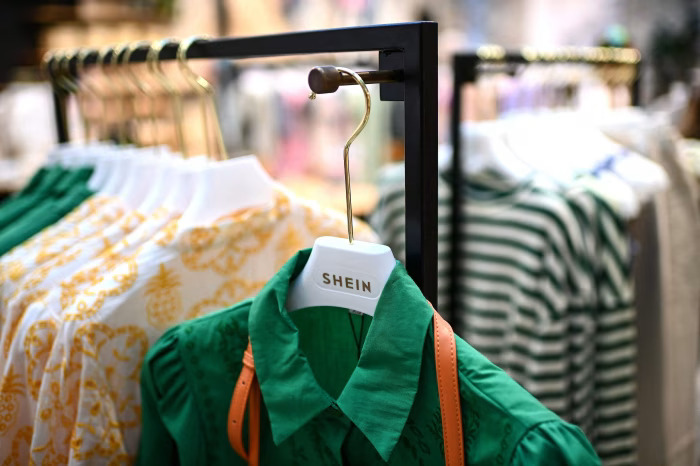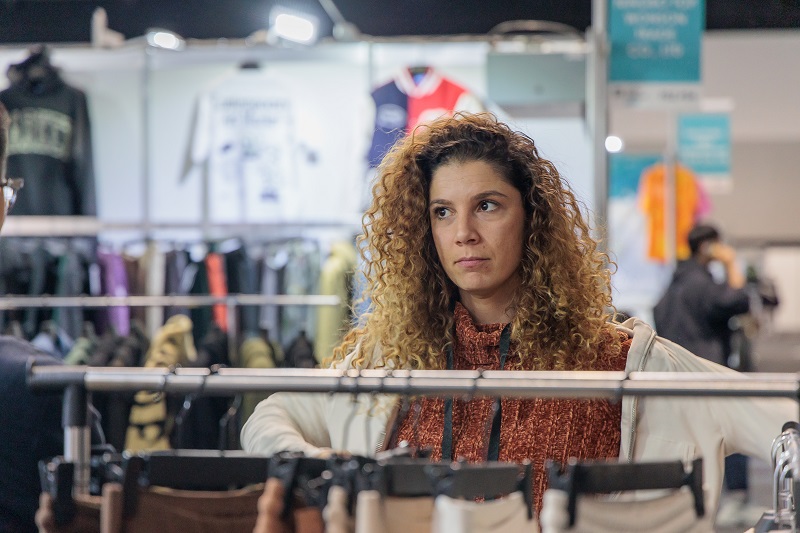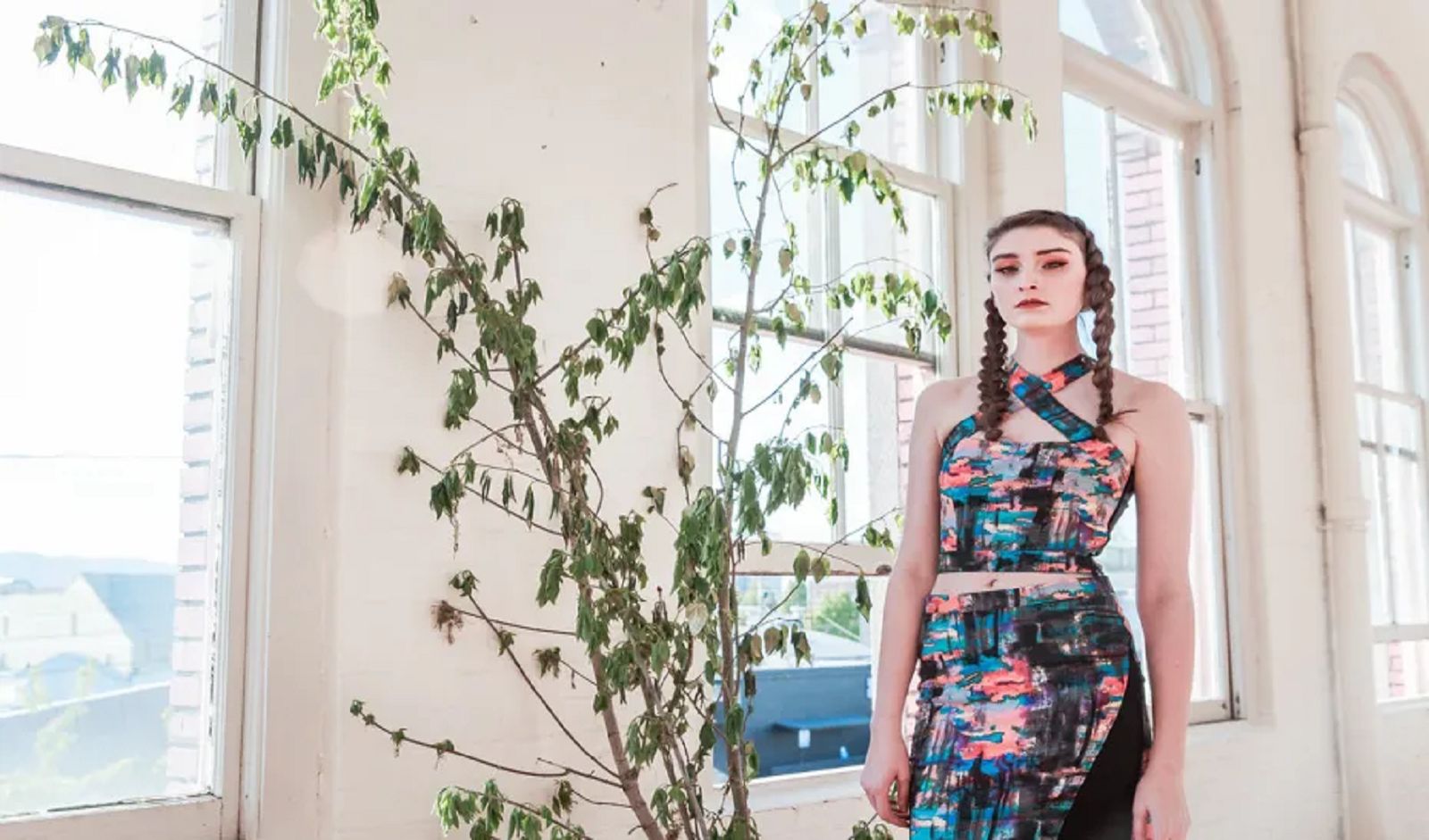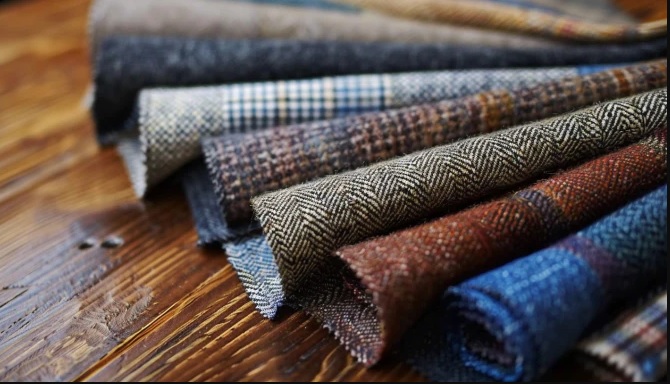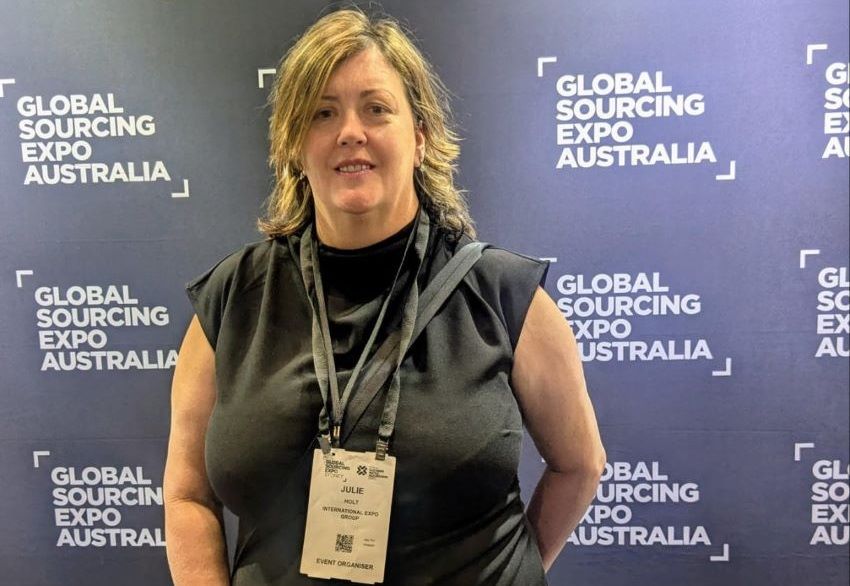FW
Denime Premiere Vision show has announced new dates, in a new location, at the heart of Paris where it was incepted. For its next edition to be held on November 2 & 3, Denim Première Vision will move into in a new Parisian space: the Paris Event Center (PEC), after having had five editions in Barcelona where the event took on a new dimension.
Since its inception in 2007, Denim Premiere Vision has affirmed itself as a driving force for the international denim community by initiating movements, giving surprises and getting into innovation. Each season of the exhibition in the last 10 years, the show has reinvented itself to better meet the needs of a demanding and versatile industry and the expectations of brands and of consumers in the constant quest for what’s exclusive and inspiring.
Denim Première Vision, is the market leader and benchmark for creative, high-end international denim industry. By moving to a new venue in East Paris, already chosen by some major fashion players for their fashion shows and showrooms, the organisers of Denim Première Vision are acting on thoughts that have been formed over several seasons to meet the expectations of the global denim market to be inventive.
US-based Wazoodle is looking to revive the textile industry in the country and promote in-house manufacturing. Wazoodle provides a variety of fabrics and sewing materials online through its official website. The company specializes in selling high-quality fabrics, diaper sewing supplies and sewing accessories at an affordable cost.
Wazoodle makes athletic jerseys and pique knits, microfiber terry plus, organic fabrics, bamboo or organic cotton knits, and pre-cut diaper making kits and soaker blanks in various fabrics.
Since 2010, the company has managed to create more than 500 jobs in the country. Wazoodle Fabrics, based in New Jersey, is a leading manufacturer and distributor of quality textiles, notions and other items. Its main focus is eco-friendly fabrics, particularly those used in articles that reduce the use of disposable items.
Wazoodle takes pride in supporting the textile manufacturing industry in North America. All the fabrics are manufactured in the USA or Canada. Any fabrics and notions sourced from overseas are only taken from trusted suppliers.
The company has over 70 years’ experience in manufacturing of textiles and quality control and quality assurance in pharmaceuticals and medical devices and an in-depth knowledge of textile chemistry, organic chemistry, microbiology.
Nike factories that produce University of Washington apparel will be investigated by Workers’ Rights Consortium (WRC). This is a labor rights watchdog group that intervenes and mediates when laborers are being deprived of their rights as workers. The contract is the first of its kind in the US.
College-branded athletic wear is big business for Nike. University-logo apparel is a $4 billion market for the company. If significant labor violations are found in a Nike factory where UW-branded apparel is being made, the company must withdraw its orders.
Nike’s involvement with the University of Washington has been under increased WRC scrutiny after a series of labor rights violations in a factory in Vietnam. This factory employs close to 8,500 workers and produces collegiate-branded apparel for many universities including the University of Washington.
Some of the worst labor abuses in Nike’s history were unearthed at this factory. These include forced overtime, denial of sick leave, discriminatory dismissal of pregnant workers, and unsafe building temperatures that resulted in incidents of workers collapsing unconscious at their workstations.
Collegiate licensing issues with Nike regarding labor rights have been happening at other campuses around the US. Georgetown, Rutgers, Berkeley, and UCLA have cut ties with Nike due to lack of cooperation with WRC.
World’s cotton harvested area in 2016-17 is projected at about three per cent below last season. For India—the leading cotton producer—the crop is forecast at 27 million bales in 2016-17, two per cent above 2015’s six-year low. In 2016-17, an above-average yield is expected to more than offset lower cotton area as farmers in India are reported to have planted alternative crops.
In China, production is projected at 21 million bales in 2016-17, 4.5 per cent below a year ago as area devoted to cotton declines for the fifth consecutive season. World cotton trade in 2016-17 is expected to be 2.6 per cent below last season and the lowest since 2008-09. With China’s imports projected to remain unchanged in 2016-17, reductions are seen for a number of countries, including Pakistan, Turkey, and Indonesia. Partly offsetting these decreases, however, are increased imports by Vietnam and Bangladesh.
Cotton consumption in China is forecast at 35 million bales in 2016-17, up from 34 million bales in 2015-16, as cotton product exports remain an important part of the country’s economy. India’s cotton mill use is forecast slightly lower in 2016-17 at 24 million bales as domestic supplies tighten, and yarn exports to China are expected to decrease.
Cotton consumption in China is forecast at 35 million bales in 2016-17, up from 34 million bales in 2015-16, as cotton product exports remain an important part of the country’s economy.
India’s cotton mill use is forecast slightly lower in 2016-17 at 24 million bales as domestic supplies tighten, and yarn exports to China are expected to decrease.
A three-day Textile Asia exhibition began in Lahore at the Centre last Saturday. The exhibition has been organised jointly by the Pakistan Readymade Garments and Manufacturers and Exporters Association (PRGMEA) and E-commerce Gateway Pakistan. More than 450 exhibitors are displaying at the trade fair that covers garments, embroidery, machinery, digital printing, chemicals and allied services.
The Textile Asia exhibition, that is the largest event of its kind, provides an effective podium for joint ventures and collaborations among the local textile industry and international entrepreneurs. The organizers are expecting 50,000 people to visit the exhibition including 550 foreign delegates from trade and corporate sectors.
Since the China-Pakistan Economic Corridor (CPEC) has opened up a world of opportunities for both Pakistan and China, the focus is on linking Chinese small manufacturing enterprises (SMEs) to Pakistani SMEs. Though Pakistan is the fourth largest cotton producing country in the world, it has failed in converting this into value-added products. It fetches only $1.17 billion per million bales whereas our competitors like Bangladesh gets $6 billion and India gets $1.97 billion for same quantity.
Despite a highly competitive global market, Pakistan's apparel industry has proven its strength by pushing export by 4.83 per cent in 2015-16.
India's first textile university will come up at Surat for which the Gujarat government will provide funds worth Rs 800 to Rs 900 crores. The aim of the university is to provide all kinds of support including technology, research and development (R&D) and skilled manpower etc. The purpose is to create a complete eco system for the textile industry in Gujarat and India. It will guide the government in policy making. The textile industry will support the government in this endeavour.
And as Chandan Chatterjee, Director of the Centre for Entrepreneurship Development (CED), a government of Gujarat organization says the Centre’s aim is not to just fulfill academic requirements of textile industry. This will serve in many ways like support in R&D, policy making skill manpower training etc. The university is expected to tie up with various centres of excellence and other national and international institutes as per the requirements.
The university will spread over 250 acres, construction will start early next year and it will be operational in one and a half years.
Bangladesh-based denim fabrics manufacturer Square Denim has started focusing on producing high quality fabrics for high-end denim products. It believes such a policy will help the industry in value addition. Tapan Chowdhury, MD of Square Denim said that focusing on high quality products rather than massive manufacturing of ordinary fabrics will not only add value to our industry but also help it sustain.
Square Denim has a vision to become one of the world’s finest denim fabric mills with the most advanced machinery and highly experienced management team. Giving details, Chowdhury said Bangladesh is a fast-growing market for fashion products, while China, the global leader in clothing industry, is shifting focus from volume to value-added goods in production policy.
Chowdhury says, Bangladesh has now concentrated on producing value added products to enlarge export volume. Square Denim has a big plant. It has a biological effluent treatment plant that has the capacity to treat 70,000 litres of water an hour. The treated water is used to flush bathrooms in the factory and workers’ dormitory. The company also has its own captive power generation plant with eight-megawatt power generation and plant currently producing 4.5MW. Starting production in October 2015, Square Denim produces 1.2 million yards of denim fabric a month. The volume is expected to increase to 2.5 million yards after the completion of the second phase by April next year. 950 workers are employed in the company that has given accommodation facilities to 70 per cent of the workforce.
In its endeavour to promote polyester fabrics, saris and dress materials manufactured in Surat, the Southern Gujarat Chamber of Commerce and Industry (SGCCI) plans to set up an extension office at Dhaka with the assistance of Federation of Bangladesh Chamber of Commerce and Industry (FBCCI). Recently, a SGCCI delegation led by its president B S Agarwal visited Bangladesh and held a series of meetings with the Bangladesh Garment Manufacturers and Exporters Association (BGMEA), FBCCI, Chittagong Chamber of Commerce and Industry at Dhaka to promote synthetic fabrics of Surat.
Agarwal says Bangladesh is the top manufacturer of readymade garments and its garment industry uses around 90 per cent cotton. There is huge potential for Surat fabrics, including saris and dress materials. The FBCCI office-bearers have invited Surti weavers and textile processors to set up their units in Dhaka and Chhitgong.
He further said fabric samples will be sent to the SGCCI office at Dhaka and circulated to all garmenting units there. The SGCCI also needs to register its fabric with the buyers of top world-renowned readymade garment brands. Once Surat's fabric is registered, orders will start flowing. He said the annual export of readymade garments to Europe and the US from Bangladesh is pegged at $28 billion. Most cotton fabric is sourced by garment manufacturers in Bangladesh from India and China. Bangladesh has free trade agreements (FTA) with all leading countries including those of Europe and the US.
For wool growers hoping to supply to important therapeutic market sector, myth-busting research is defining the skin health and comfort benefits of superfine Merino wool and the fibre parameters. According to Australian Wool Innovation (AWI), clinical studies are showing the therapeutic benefits of wearing superfine Merino wool that is useful for those suffering from skin diseases such as eczema, also known as atopic dermatitis (AD).
Eczema typically results in itchy, red, cracked and painful skin. It often starts in childhood with an estimated 12-28 per cent of children born in western countries affected. Separate clinical trials conducted by the Murdoch Childrens Research Institute and by the Queensland Institute of Dermatology are challenging and breaking the significant myths that wool is not good to wear for those with AD and wool is a possible source of allergy, AWI said.
Program Manager of Fibre Advocacy and Eco Credentials with AWI, Angus Ireland said that AWI was keen to develop a specification for wool that is suitable for sensitive skin. It is likely that that will evolve into a swing tag that brands would then put next to the Woolmark logo on their products. Trials were conducted using light weight, 150 gram per square metre superfine Merino wool garments with a micron range finer than 18.6 microns, but there are a number of fibre, fabric and garment characteristics that affect the overall level of comfort of a wool garment.
Facing a tough time in India over sale of its genetically modified seeds, Monsanto has started talking to US lawmakers to seek their support for its interest in the growing Indian market. The company's registered lobbyist Akin Gump Strauss Hauer & Feld has disclosed Monsanto has paid more than Rs 1 crore since the last quarter of 2015 for lobbying on issues related to the regulation of biotechnology products in India along with a couple of other specific issues.
As per disclosures made by the lobbying firm, it worked for Monsanto on India-specific issues in the US Senate, the US House of Representatives, the Department of State, the Department of Commerce and the US Trade Representative (USTR) during the second quarter of 2016.
In its latest disclosure report, Monsanto has said that it had paid as much as $50,000 for lobbying activities till the quarter ended June 30. Similar amounts were disclosed for each of the two previous quarters, taking the total amount to $150,000.
Besides issues relating to regulations in India, Monsanto's lobbyists have also disclosed having lobbied on a few other issues in these quarters. These include: US regulatory approval of agricultural products and those relating to biotech approvals in China and also the Defend Trade Secrets Act of the US.


